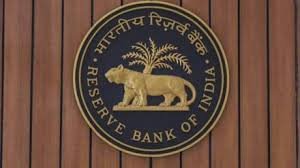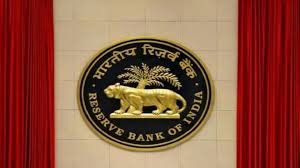RBI Keeps Repo Rate Unchanged at 6.5% in August 2024 MPC Meeting
Introduction to the RBI MPC Meeting
The Reserve Bank of India (RBI) has announced its decision to maintain the repo rate at 6.5% during its Monetary Policy Committee (MPC) meeting held in August 2024. This announcement comes amidst a complex economic environment characterized by fluctuating inflation rates and changing economic indicators. The decision reflects the RBI’s cautious approach to balancing inflation control and economic growth.
Details of the Repo Rate Decision
During the August 2024 MPC meeting, the RBI’s committee members deliberated extensively on the current economic conditions before concluding that a stable repo rate was necessary. The repo rate, which is the rate at which the RBI lends money to commercial banks, remains unchanged to ensure that the cost of borrowing remains consistent. This stability is crucial for both businesses and consumers as it affects interest rates on loans and deposits.
Impact on Inflation and Economic Growth
The RBI’s decision to keep the repo rate unchanged is aimed at managing inflationary pressures while supporting economic growth. Recent inflation data showed a mixed picture, with some sectors experiencing price increases while others faced deflationary trends. By maintaining the repo rate, the RBI seeks to prevent drastic fluctuations in borrowing costs that could disrupt economic stability.
Market Reactions and Economic Implications
Following the announcement, financial markets have reacted with cautious optimism. Analysts believe that the RBI’s decision provides a sense of stability, which is beneficial for investor confidence. The unchanged repo rate is expected to support ongoing economic recovery efforts and provide a steady environment for business investments.
Future Outlook and Expectations
Looking ahead, the RBI will continue to monitor economic indicators and adjust its policies as necessary. The committee has indicated that it remains vigilant about inflation trends and economic growth. Future changes to the repo rate will depend on evolving economic conditions and the effectiveness of current policy measures.

Why this News is Important
Stability in Monetary Policy
The RBI’s decision to keep the repo rate unchanged at 6.5% signifies a period of monetary policy stability. For students preparing for government exams, understanding the implications of such decisions is crucial as it reflects the RBI’s approach to managing economic stability and growth.
Impact on Inflation and Borrowing Costs
Maintaining the repo rate impacts inflation control and borrowing costs. Students should note how central banks use interest rates to influence economic conditions and manage inflation. This knowledge is vital for understanding broader economic policies and their effects on the financial system.
Economic Growth and Investor Confidence
The decision affects economic growth and investor confidence. An unchanged repo rate provides a predictable environment for investments and business planning. Recognizing the connection between monetary policy and economic performance is essential for students in fields related to economics and finance.
Understanding Monetary Policy Decisions
Grasping the reasons behind the RBI’s monetary policy decisions helps students understand the broader economic context. The central bank’s approach to managing interest rates provides insights into economic management and policy-making processes.
Preparation for Government Exams
For students preparing for government exams, being aware of such decisions and their implications is crucial. This knowledge helps in answering questions related to economic policy, central banking functions, and their effects on national and global economies.
Historical Context:
Overview of RBI’s Role in Monetary Policy
The Reserve Bank of India (RBI) plays a pivotal role in India’s monetary policy by regulating interest rates and controlling inflation. The MPC, formed under the RBI Act, is responsible for setting the repo rate, which influences the cost of borrowing and overall economic activity.
Previous Rate Changes and Economic Impact
In recent years, the RBI has adjusted the repo rate multiple times in response to changing economic conditions. Historical rate changes have aimed to address inflationary pressures and stimulate economic growth. Understanding these historical adjustments provides context for the RBI’s current policy decisions.
Economic Challenges and Responses
Economic challenges such as inflation spikes and economic slowdowns have prompted the RBI to adjust its policies in the past. The RBI’s response to these challenges often involves modifying the repo rate to stabilize the economy and promote growth.
Significance of the MPC Meetings
The MPC meetings are a critical component of India’s monetary policy framework. They provide a platform for evaluating economic conditions and making informed decisions about interest rates. These meetings reflect the RBI’s commitment to maintaining economic stability and growth.
Key Takeaways from RBI Keeps Repo Rate Unchanged
| Serial No. | Key Takeaway |
|---|---|
| 1 | The RBI decided to keep the repo rate unchanged at 6.5% in August 2024. |
| 2 | This decision aims to balance inflation control with economic growth. |
| 3 | Maintaining the repo rate provides stability in borrowing costs and investment planning. |
| 4 | Financial markets have reacted with cautious optimism, reflecting confidence in economic stability. |
| 5 | Future changes to the repo rate will depend on evolving economic conditions and effectiveness of current policies. |
Important FAQs for Students from this News
1. What is the repo rate set by the RBI in August 2024?
The repo rate is set at 6.5%.
2. What is the role of the RBI’s Monetary Policy Committee (MPC)?
The MPC is responsible for setting the repo rate to manage inflation and economic growth.
3. Why did the RBI decide to keep the repo rate unchanged?
The RBI aimed to balance inflation control with supporting economic growth.
4. How does the repo rate affect borrowing costs and inflation?
An unchanged repo rate stabilizes borrowing costs for businesses and consumers, while also influencing inflation rates.
5. What are the expected implications of the RBI’s decision on investor confidence?
The decision is expected to provide stability, which could boost investor confidence and support economic recovery.
Some Important Current Affairs Links

















